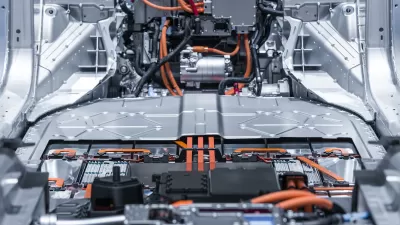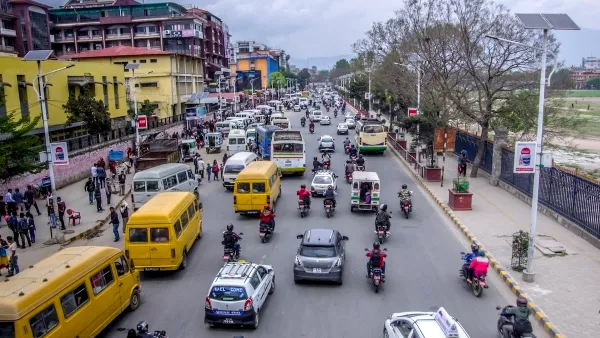The electric car is poised to have its moment. In fact, the 2020s could be the decade of the electric car.

Tom Randall reports: "Battery prices fell 35 percent last year and are on a trajectory to make unsubsidized electric vehicles as affordable as their gasoline counterparts in the next six years, according to a new analysis of the electric-vehicle market by Bloomberg New Energy Finance (BNEF)."
The same report expects for long-range electric vehicles to cost $22,000 (in today's dollars) by the year 2040. Randall notes that OPEC is maintaining that the adoption of electric car technology will occur slowly, making up just 1 percent of car sales by 2040. But many indications say otherwise. Sales of electric cars are now growing 60 percent year over year worldwide, for instance—the same rate that pushed henry Ford's Model T past the horse and buggy back in the 1910s, according to Randall.
After noting the growth rate of electric vehicle sales, Randall changes focus to the impact the electric car market will have on the oil industry. "[Bloomberg analysis] found that electric vehicles could displace oil demand of 2 million barrels a day as early as 2023. That would create a glut of oil equivalent to what triggered the 2014 oil crisis." At that point, the story becomes equally about the rise of the electric car as it becomes about the next great oil crash.
David Roberts picked up on the report for Vox by explaining the S curve of technology adoption and rehashing Randall's points.
FULL STORY: Here’s How Electric Cars Will Cause the Next Oil Crisis

Planetizen Federal Action Tracker
A weekly monitor of how Trump’s orders and actions are impacting planners and planning in America.

Congressman Proposes Bill to Rename DC Metro “Trump Train”
The Make Autorail Great Again Act would withhold federal funding to the system until the Washington Metropolitan Area Transit Authority (WMATA), rebrands as the Washington Metropolitan Authority for Greater Access (WMAGA).

The Simple Legislative Tool Transforming Vacant Downtowns
In California, Michigan and Georgia, an easy win is bringing dollars — and delight — back to city centers.

The States Losing Rural Delivery Rooms at an Alarming Pace
In some states, as few as 9% of rural hospitals still deliver babies. As a result, rising pre-term births, no adequate pre-term care and "harrowing" close calls are a growing reality.

The Small South Asian Republic Going all in on EVs
Thanks to one simple policy change less than five years ago, 65% of new cars in this Himalayan country are now electric.

DC Backpedals on Bike Lane Protection, Swaps Barriers for Paint
Citing aesthetic concerns, the city is removing the concrete barriers and flexposts that once separated Arizona Avenue cyclists from motor vehicles.
Urban Design for Planners 1: Software Tools
This six-course series explores essential urban design concepts using open source software and equips planners with the tools they need to participate fully in the urban design process.
Planning for Universal Design
Learn the tools for implementing Universal Design in planning regulations.
Smith Gee Studio
City of Charlotte
City of Camden Redevelopment Agency
City of Astoria
Transportation Research & Education Center (TREC) at Portland State University
US High Speed Rail Association
City of Camden Redevelopment Agency
Municipality of Princeton (NJ)





























